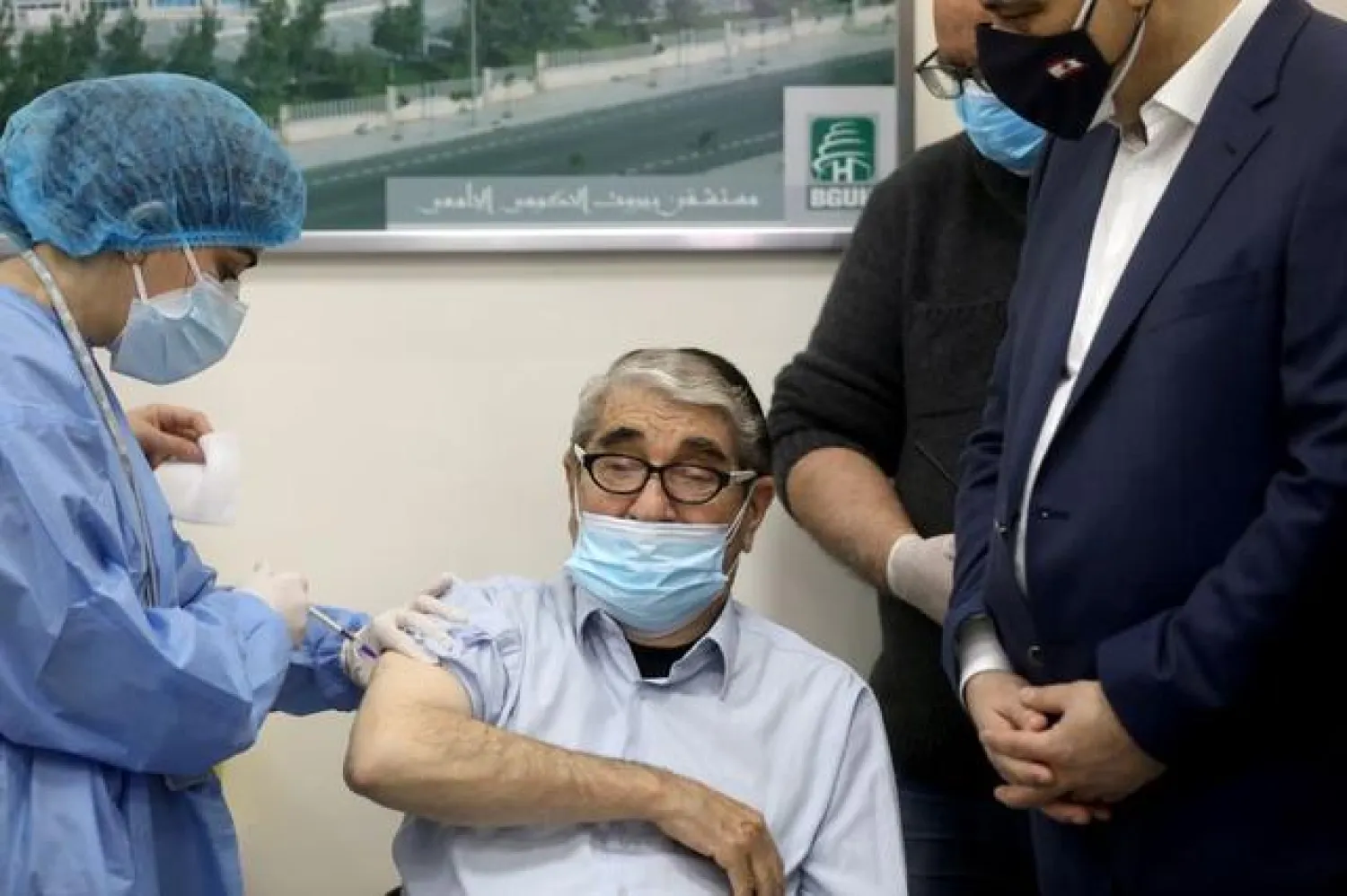Lebanon started its COVID-19 vaccination drive on Sunday by inoculating the head of critical care at its biggest public hospital, followed by 93-year-old celebrated Lebanese actor and comedian Salah Tizani.
Battling a sharp spike in infections in recent weeks which has overwhelmed its healthcare system, Lebanon took delivery of 28,500 doses of the Pfizer-BioNTech vaccine on Saturday, the first batch of 2.1 million doses set to arrive in stages throughout the year.
Delays in signing a deal to purchase a vaccine and the rollout of an inoculation program have caused frustration in Lebanon. The World Bank, which helped fund the first batch of doses, has said it would monitor the inoculation drive to ensure the shots go to those most in need.
“I will not be receiving the vaccine today, for today is not my turn and the priority is for the medical sector that has done its duty and presented big sacrifices,” caretaker Prime Minister Hassan Diab told reporters at the Rafik Hariri hospital, where Lebanon’s first coronavirus case was quarantined about a year ago.
Tizani, who is better known by his stage name Abou Salim, encouraged everyone to get the vaccine.
“For those who are afraid to get vaccinated, I swear by God, it is protection for them,” he said, Reuters reported.
The country has also booked 2.7 million doses through the global COVAX scheme for poorer countries and officials say talks are underway for some 1.5 million doses of the AstraZeneca vaccine.
The total number of doses ordered so far would cover about half of Lebanon’s population of more than six million, which includes at least a million Syrian refugees.
Lebanon has been under a 24-hour curfew for nearly a month, although the government began lifting some restrictions this week.









